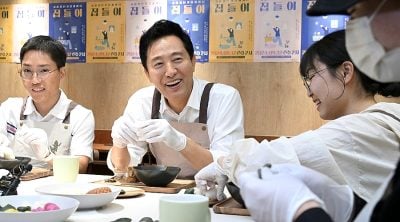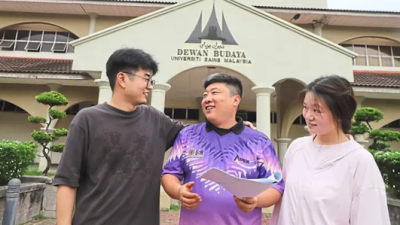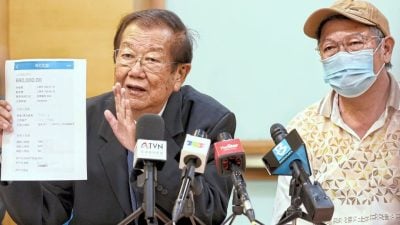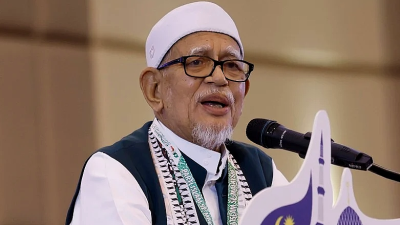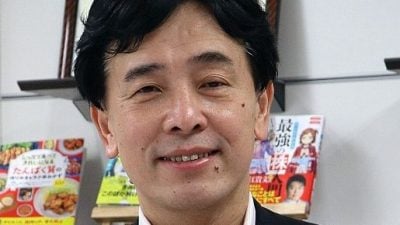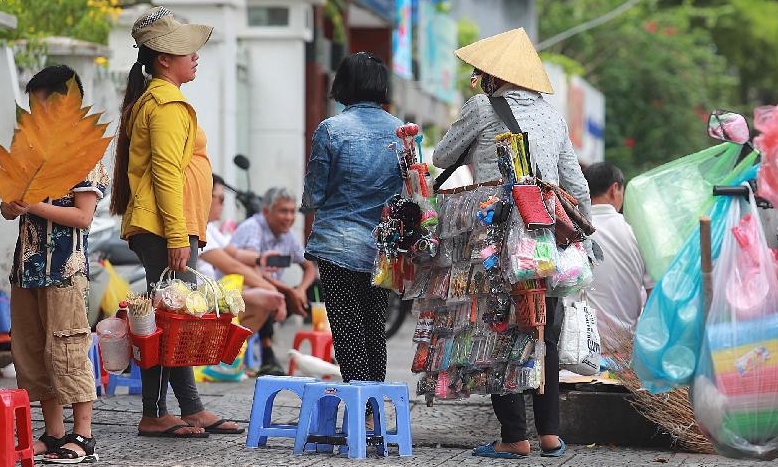
Ray Lim Weng Kong, a Malaysian expatriate and veterinary drugs company marketing manager based in Vietnam, feels that Vietnamese are a very easy-going, enthusiastic and prideful people.
Having worked in the country for eight years now, he knows very well that he should not rebuke them in their face and has to explain every job detail, including any unexpected circumstances that may arise, otherwise "they will say no when you want them to handle such unexpected circumstances.
"Many may say the Vietnamese people are very materialistic, but you can't blame them, as they have gone through wars and worked their ways from rags to riches."
He also said many of his Vietnamese colleagues take up part-time jobs to supplement their incomes while they are still young.
Frequent outstation trips
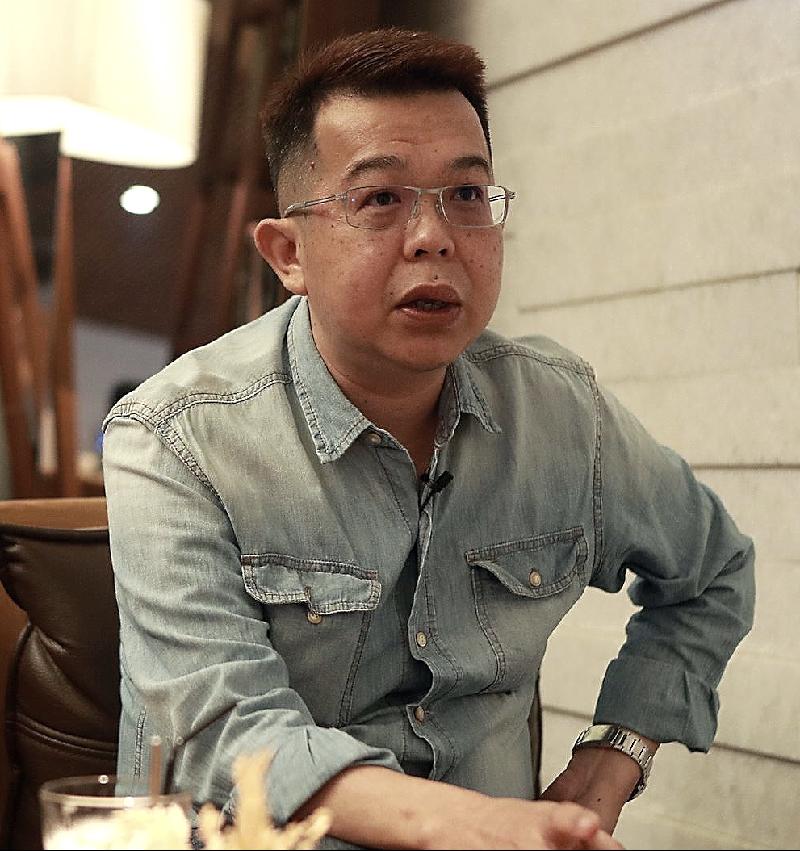
Many tend to shun an opportunity to work in Vietnam, but not Ray Lim. To him, the country offers tremendous opportunities.
"Many people thought that Vietnam was a 'barren' land just opening up to the outside world." But today, many have changed their minds, believing this country will hold excellent growth potentials over the next five years.
As marketing manager, Lim spends at least 18 to 20 days each month working outstation, seeing customers from north to central and south Vietnam and promoting his products to them.
"Vietnam has 58 provinces and five municipalities. I would say I have been to 60 of them. Every time I come back to Ho Chi Minh City just to handle the documents and then off I go again."
Each time he travels outstation, his company will assign him a driver and an interpreter. While he has managed to pick up some simple Vietnamese conversation over the years, that will not be enough if he has to handle the technical terms.
Lim has a special affinity for Da Nang in central Vietnam, which is pretty close to Hoi An to the south and ancient capital Hue to the north.
From his experience, he feels that people in central Vietnam are generally more hardworking, probably due to the lack of natural resources there.
Overall speaking, he feels that the entire country is full of energy and this is one reason he has chosen to stay until he retires.
If he were to leave the country, Lim says he would miss his Vietnamese colleagues very much.
"They take very good care of me. There was one time a colleague queued up with me for four hours just to see a doctor at the hospital."
While there are lots of pharmacies in Vietnam, there are hardly any clinics, and a hospital is the only place you will go if you fall sick. English is spoken only if you visit a top class hospital.
Malaysians more versatile
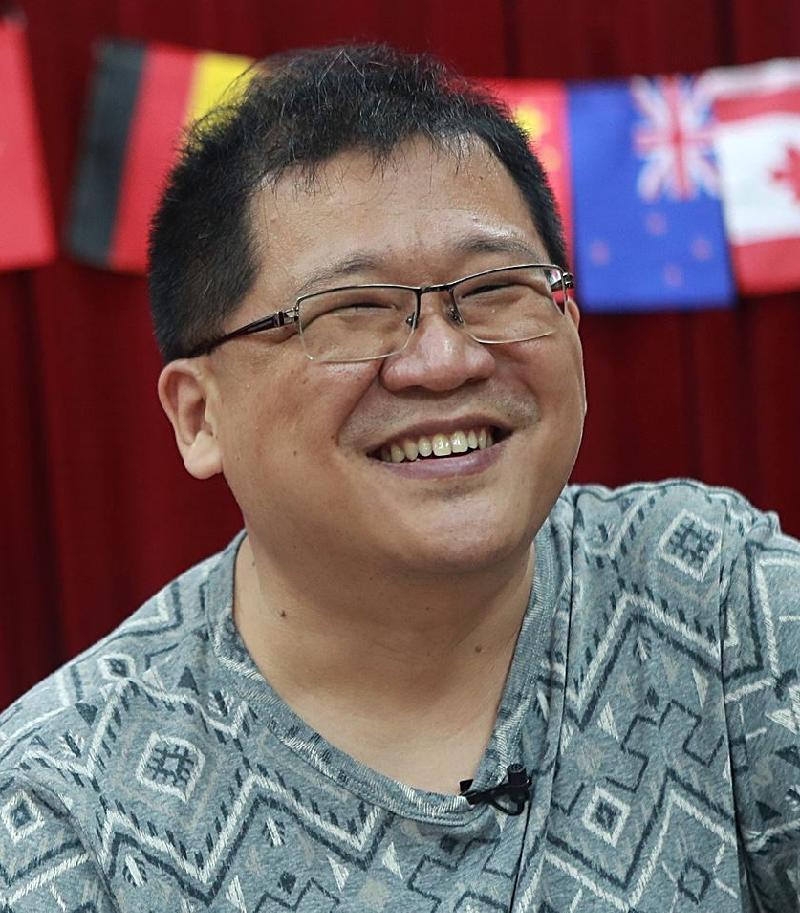
Ling Foong, who is from Sitiawan, Perak, is a quantity surveyor with an international consultant company. He has been working in Vietnam alone for 11 years while his wife and three daughters remain in Malaysia.
It was a Sunday morning when we paid Ling a visit. As usual, he was helping to prepare audiovisual equipment for the church which has a large number of foreign devotees including those from Singapore, Cambodia, the Philippines, United States, Australia and Nigeria. They are either doing business or working in Vietnam or have settled down in the country after many years.
Compared to people from other countries, Ling feels that Malaysians have relatively more diverse cultural backgrounds and are therefore more ready to adapt to life in a foreign country, adding that many foreigners find it tough to adapt to life in Vietnam, largely due to the utterly messy traffic and hot-tempered people.
"As a matter of fact, traffic speed is pretty slow here in Vietnam. You just need to cross the street slowly and carefully."
Ling admits that life is more relaxed in Vietnam than in Kuala Lumpur, and he will give his Vietnamese colleagues longer time to complete a job. He nevertheless admits that Vietnamese are in reality very hardworking people even though they may have very different work culture from us.
Ling came to Vietnam on economic considerations. Today, his eldest daughter has finished STPM while his second daughter is 16 this year. He plans to bring his wife and youngest daughter to Vietnam but is worried whether they can adapt to life in the country
"Why don't you go back to Malaysia?"
Ling, who is 45 this year, said he had built up his business relations in Vietnam all these years and if he were to go back to Malaysia, he would have to start everything from scratch.
"I only go back for retirement. Another 15 or 20 years maybe?"
Good investment destination
An hour's drive from Ho Chi Minh City is Long An province, a major industrial area with many renowned sports brand equipment factories as well as Malaysian factories, including AK Koh Enterprise.
AK Koh Vietnam's general director Koh Cheng Teck is the nephew of the company's founder Koh Ah Kuan.
He did not first taste the famous A1 Bak Kut Teh when he came to Vietnam, but "civet coffee". Vietnam is the world's second largest coffee producer and AK Koh has set up a coffee processing plant here. In addition, the food company also manufactures abalone noodle and infant food products for the local market.
Prior to this, Koh Cheng Teck was sent by his uncle to explore the East Malaysian and Indonesian markets. After a trip to Vietnam in 2006, they found this country politically stable and full of energy and decided to expand their business here.
Koh brought his wife Ku Soo Ching to Vietnam the following year. Today, both their daughters are schooling here in Vietnam.
"I was then 30 years old and all I wanted was to have my own business. My uncle has been very supportive of me."
Koh recalled that due to language issue, they had difficulty communicating with the local people initially, and often both he and his wife had to work past midnight before they could ride home in their scooter.
"My wife used to complain why we had to ride a scooter in Vietnam whereas we had our own car back in Malaysia."
Koh initially transplanted wholesome the Malaysian style of management to Vietnam but found this not working.
"We need to assimilate into the local culture and make necessary adjustments to fit into the system."
Koh managed to get a Chinese Vietnamese in his 70s to be his language teacher and was able to communicate in simple Vietnamese after about a year.
It was almost lunch time when we finished the interview, and Koh's staff had prepared lunch for everyone, serving us the famous A1 Bak Kut Teh and chicken curry albeit with a Vietnamese touch, such as chili in the Bak Kut Teh soup and lots of milk in the curry.
There isn't a restaurant nearby and as such the staff normally cook and eat inside the factory together.
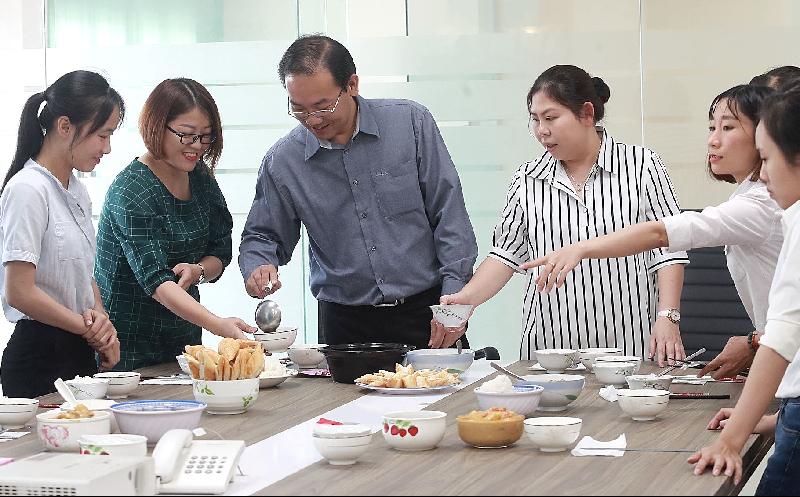
ADVERTISEMENT
ADVERTISEMENT






